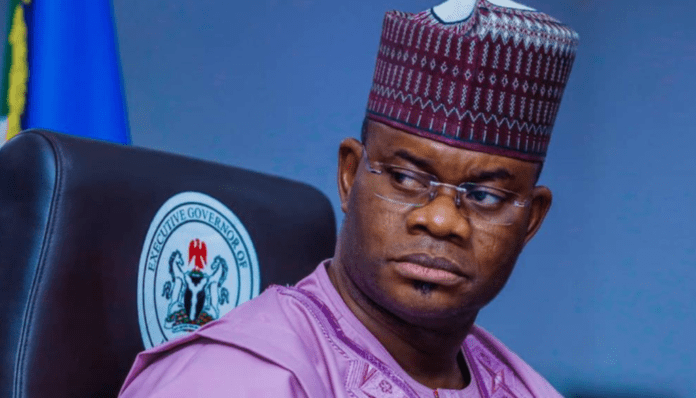Nigeria’s political and legal landscape has been engrossed in the ongoing judicial saga involving former Kogi State Governor Yahaya Bello’s alleged involvement in an astounding N80.2 billion scam. Along the process, the Economic and Financial Crimes Commission (EFCC) will encounter political opposition, court challenges, and public scrutiny in its unwavering pursuit of justice.
Yahaya Bello: Facing Allegations of Embezzlement and the Pursuit of Accountability
Yahaya Bello has been sought by the EFCC, which is actively advocating for his arraignment before the Federal High Court in Abuja as part of its unrelenting pursuit of accountability. According to the commission, Bello orchestrated a plot with collaborators to illegally siphon an incredible N80.2 billion in public funds. This charge has spread throughout Nigeria’s political landscape, highlighting the seriousness of the purported financial misbehavior and the necessity of holding those responsible accountable in order to rebuild public confidence in the government.
Jurisdictional Challenges
The EFCC is handling jurisdictional complexities while navigating a maze of legal challenges. Although the EFCC was initially prevented from commencing legal action against Bello by an interim injunction obtained by the Kogi State High Court, the Court of Appeal is currently considering the EFCC’s request to have this injunction set aside. Further complicating the legal picture is the anticipated ruling by Justice Emeka Nwite of the Federal High Court in Abuja about the EFCC’s plea for substituted service regarding Bello.
Political Backlash and Defense: APC’s Stand
Chieftains of the All Progressives Congress (APC) have sided with Yahaya Bello during the judicial procedures, protesting what they see as unfair prosecution. They contend that Bello’s prosecution amounted to a well-planned witch hunt, highlighting how crucial it is to preserve the rule of law in the face of growing accusations. Nevertheless, the EFCC is unfazed by political opposition and blowback in its unwavering pursuit of justice.
Charges and Allegations: Unraveling the Financial Misconduct
A troubling picture of suspected financial malfeasance is painted by the allegations brought against Yahaya Bello and his co-defendants. From money laundering to conspiracy, the EFCC claims that the defendants intentionally diverted public funds for their benefit, a serious felony that betrays the confidence of the Nigerian people. The severity of the accusations highlights how serious the problem is and how important it is to hold those involved accountable.
Legal Implications and Public Perception
Beyond the courtroom, Nigeria’s judicial system and its dedication to enforcing the rule of law are significantly impacted by the legal dispute. Not only will the verdict in this case affect Yahaya Bello’s future, but it will also have an impact on how the public views government accountability and openness. The judiciary has a crucial opportunity to uphold its independence and integrity as the public watches the proceedings intently.
The Role of Nigeria’s Judiciary
Fundamentally, this case serves as an indicator for Nigeria’s judiciary, which has the duty of rendering impartial decisions and preserving the values of justice and equity. The courts must uphold the rule of law and make sure that justice is carried out impartially in the face of political pressure and public scrutiny. The ability of Nigeria’s legal system to administer justice, regardless of the parties involved, is what determines its credibility.
As the legal journey progresses, one thing is becoming evident: maintaining the integrity of Nigeria’s government system depends heavily on accountability and openness. Strong measures are desperately needed to fight corruption and protect the rule of law, as demonstrated by the accusations made against Yahaya Bello and his co-defendants. The EFCC must be given support in its pursuit of justice, and the judiciary must show that it is committed to justice with no sway. Nigeria won’t be able to go toward a future where accountability and honesty are paramount until its democratic institutions have earned back the trust of the people.


